Earth
Sign up for our newsletter
We summarize the week's scientific breakthroughs every Thursday.
-
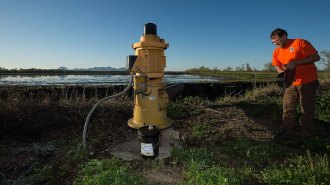 Earth
EarthU.S. wells are pumping up groundwater from increasing depths
Around the United States, groundwater wells are getting deeper in search of new sources of freshwater, a new study shows.
-
 Ecosystems
EcosystemsPlanting trees could buy more time to fight climate change than thought
Earth has nearly a billion hectares suitable for new forests to start trapping carbon, a study finds.
By Susan Milius -
 Earth
EarthNight-shining ‘noctilucent’ clouds have crept south this summer
Clouds high in the atmosphere that catch the sun’s rays even after sundown may be seen farther from the poles due to an increase in moisture in the air.
-
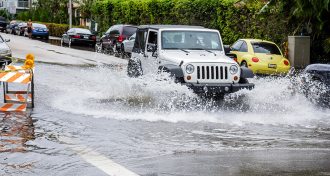 Climate
Climate‘Sunny day’ high tide floods are on the rise along U.S. coasts
Sea level rise led to record-breaking tidal flooding in cities along the U.S. East Coast, a NOAA report found.
-
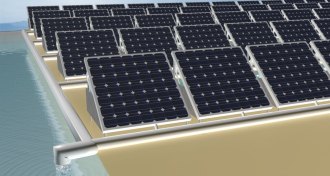 Tech
TechThis solar-powered device produces energy and cleans water at the same time
Someday, the two-for-one machine could help curb electricity and freshwater shortages.
-
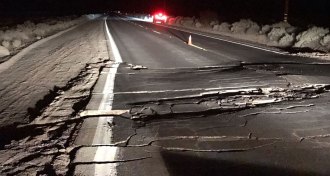 Earth
Earth3 questions seismologists are asking after the California earthquakes
After back-to-back quakes, scientists are scrambling to figure out which faults ruptured and what it means for future California quake activity.
-
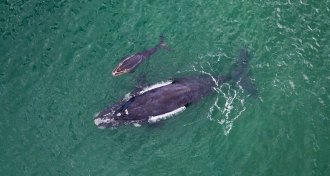 Animals
AnimalsSouthern right whale moms and calves may whisper to evade orcas
Mother-calf whale pairs call to each other quietly to stay in touch while avoiding attracting the attention of predators, a study suggests.
-
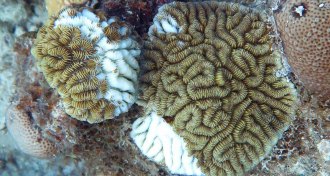 Oceans
OceansA mysterious coral disease is ravaging Caribbean reefs
Scientists are racing to learn what’s behind a disease that’s “annihilating” whole coral species in hopes of stopping it.
-
 Planetary Science
Planetary ScienceReaders wanted to know about asteroids, lithium batteries and more
Readers had questions and comments about asteroids, lithium batteries, and pyroclastic flows.
-
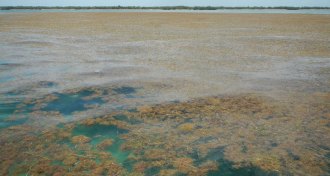 Oceans
OceansThe largest seaweed bloom ever detected spanned the Atlantic in 2018
Nutrient-rich water from the Amazon River may be helping massive seaweed mats to flourish each summer in the Atlantic Ocean.
-
 Climate
ClimateEurope’s latest heat wave has been linked to climate change
Global warming made the June heat wave at least five times more likely to happen.
-
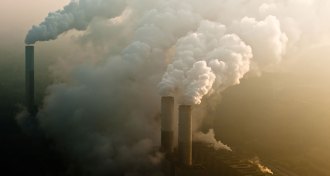 Climate
ClimateCO2 emissions are on track to take us beyond 1.5 degrees of global warming
Current and planned infrastructure will exceed the level of emissions that would keep global warming to 1.5 degrees Celsius, a new analysis finds.